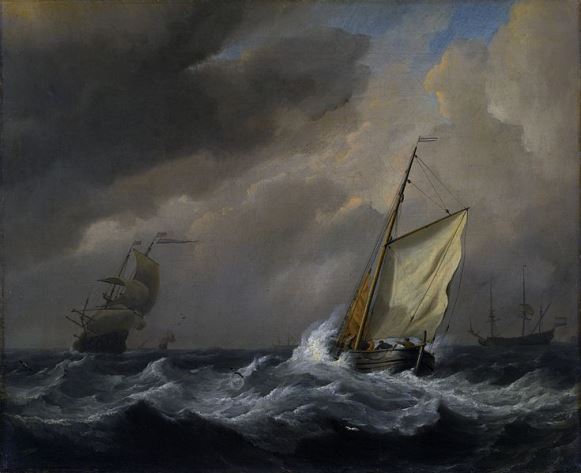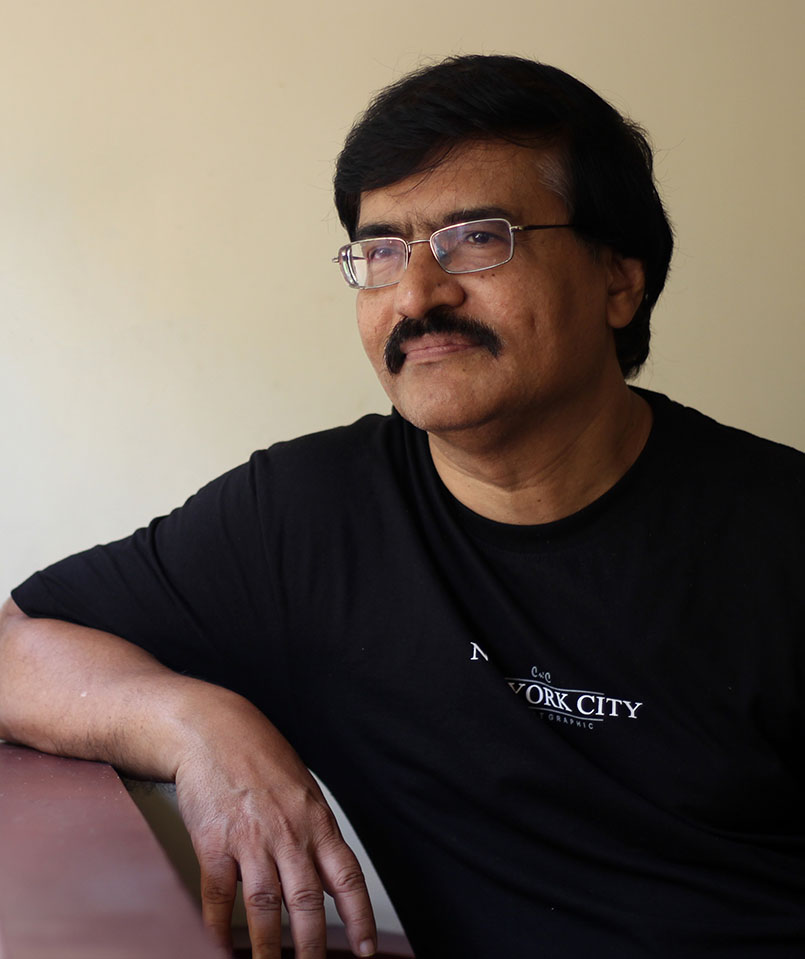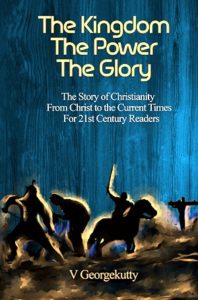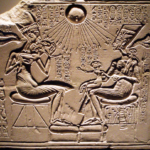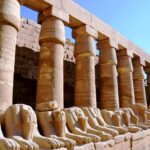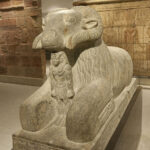“More gold had been mined from the mind of men than the earth itself”
– Napoleon Hill, ‘Think and Grow Rich’
The title of this post has been taken from the short poem ‘Invictus’, written in 1885, by English poet William Ernest Henley (1849 -1903). It had no caption when it appeared in 1888 in the ‘Book of Verses’, the poet’s first volume of poetry. Nineteenth-century newspapers that reprinted the poem gave it various titles like, “Song of a Strong Soul”, “Master of His Fate”, “Captain of My Soul” etc. Eventually, when the poem was included in ‘The Oxford Book of English Verses’, it received the Latin title “Invictus”, meaning ‘Unconquered’- an apt title considering that the poem deals with the might of human thought.
Henley wrote ‘Invictus’ under tragic circumstances. He had been battling tuberculosis. In 1875, one of his legs had to be amputated because of complications caused by his malady. But, that was just the beginning. Before long, he was told that his remaining leg too had to suffer the same fate. Henley was devastated. He sought the intervention of the distinguished English surgeon Joseph Lister. Lister eventually succeeded in saving Henley’s leg. While Henley lay convalescing in the hospital bed, he was moved to pen the sixteen lines that constitute ‘Invictus’. It seeks to convey the message of fortitude in the face of the inevitable calamities in life.
Here is the full poem:
“Out of the night that covers me,
Black as the pit from pole to pole,
I thank whatever gods may be
For my unconquerable soul.
In the fell clutch of circumstance
I have not winced nor cried aloud.
Under the bludgeonings of chance
My head is bloody, but unbowed.
Beyond this place of wrath and tears
Looms but the Horror of the shade,
And yet the menace of the years
Finds and shall find me unafraid.
It matters not how strait the gate,
How charged with punishments the scroll, [see footnote]
I am the master of my fate,
I am the captain of my soul.”
‘Invictus’ has been quoted by many renowned people in the face of crushing challenges they came across in their lives. The focus has particularly been on the concluding lines of the poem. For instance, in the face of World War II, Winston Churchill said to the House of Commons, “We are still masters of our fate. We still are captains of our souls” (9 September 1941). Nelson Mandela recited this poem to his co-prisoners in the Robben Island prison. ‘Invictus’ was read by US Prisoners of War in North Vietnamese prisons. The day after the 7 July 2005 London bombings, the Daily Mirror carried the headline “bloody, but unbowed” – words from the poem. The last stanza of the poem was quoted by the then US President Barack Obama at the memorial service of Nelson Mandela held in South Africa (10 December 2013). And Oklahoma City bomber Timothy McVeigh chose the poem as his final statement before he was put to death…
‘Invictus’ epitomizes the fighting spirit of the thinking man. Napoleon Hill, the American author whose book, ‘Think and Grow Rich’ is one of the ten bestselling self-help books ever written, says, “When Henley wrote the prophetic lines, “I am the master of my fate, I am the captain of my soul”, he should have informed us that we are the masters of our fate, the captains of our souls, because we have the power to control our thoughts.” He mentions the story of the Ford V8 car engine to underpin the point that we are the product of our thoughts. The V8 story goes as follows:
Henry Ford was raised in poverty as a farmer. He had little formal education. Yet, he rose to become one of the wealthiest individuals of the world because, all through his life, he kept thinking big. Of course, he was a whimsical man who had nursed an oversized ego. He fired people who he thought were brighter than him or appeared to carry smarter ideas in their little heads. Very few people might have considered him to be brilliant. But Henry Ford had no doubts that he was a genius. And he turned out to be one. It is all in the mind. It is all in our thoughts. As the Bible puts it, “For as he thinks within himself, so he is” (Proverbs 23:7). And when it comes to Henry Ford, the development of the V8 engine is one story that buttresses the idea.
In the nineteen twenties, Henry Ford wished to bring out an affordable car, powered by an eight-cylinder engine with all cylinders cast in the same block – the V8 engine. The eight cylinder engine blocks of those days used to be assembled in several pieces and then bolted together as one. That approach was time-consuming and expensive. It obviously did not fit with Henry’s idea of mass-producing low cost Ford cars powered by V8 engines. At the same time, casting the block of a V8 engine as a single piece, strained the limits of contemporary technology. His engineers were reluctant. They thought it was too ambitious for their times.
Ford had assembled several teams to work on the V8 engine at different times. Each team was largely unaware of the existence of the other teams. And each team was sworn to secrecy about the project. There were several false starts. Some of the teams were disbanded. Teams were reconstituted and new teams were formed. Initial prototypes were flawed and had to be scrapped wholesale. Henry Ford was a man easily offended. Yet, his engineers tried their best to convey to him that the project was practically impossible. But Henry refused to give up. Finally, the V8 engine became a reality. The engine that Ford produced was economical to be fitted into low-cost cars. His engineers thought it impossible. But Henry Ford thought it was possible. The way the thinking went made the difference between failure and success.
Referring to the V8 engine story, Napoleon Hill says, “Henry Ford was a success because he understood and applied the principles of success. One of this is desire: knowing what one wants… Whatever the mind of man can conceive and believe, it can achieve. Do not wait. The time will never be just right. A goal is a dream with a deadline.”
The critical truth for all of us is that, in his world of thoughts, each man holds the key to every condition, good or bad, that enters his life. An individual may remake his life and transform his circumstances by working patiently and intelligently upon his thoughts. As John Milton puts it, “The mind is its own place and in itself, can make a Heaven of Hell, a Hell of Heaven” (Paradise Lost).
The Holocaust experience of Victor Emil Frankl (1905 –1997) is a widely known example of how a person’s mind could “make a Heaven of Hell, a Hell of Heaven”. Frankl was an Austrian neurologist and psychiatrist. He was also a Jew. In the course of WW II, he and his family were captured by the Nazis and cast into the network of concentration and extermination camps they had been running across Europe as the ‘Final Solution’ to the Jewish question. Frankl was in hell in every sense of the term. He “suffered torture and innumerable indignities, never knowing from one moment to the next if his path would lead to the ovens or if he would be among the “saved” who would remove the bodies or shovel out the ashes of those so fated”. His mother Elsa and brother Walter died at Auschwitz – a network of Nazi death camps that operated in the Polish territory under German occupation. His wife was moved to Bergen-Belsen concentration camp in northern Germany, where she died. The only other survivor of the Holocaust among his immediate family was his sister, Stella.
Writing about the Holocaust experience of Victor Frankl, Stephen Covey says in his renowned book, ‘The Seven Habits of Highly Effective People’, “One day, naked and alone in a small room, he began to become aware of what he later called “the last of the human freedoms” – the freedom that his Nazi captors could not take away… He could decide within himself how all of this was going to affect him. Between what happened to him, or the stimulus, and the response to it, was the freedom or power to choose that response”.
Animals respond by instinct. But human beings have the capacity and freedom to think before deciding their response. This freedom, the freedom of thought, holds the power to change our lives. If we have to survive and succeed, we have to become the masters of our thoughts. When we act by instinct or surrender our freedom of thought to external circumstances, we sink to the level of animals.
Frankl chronicles his experiences as a concentration camp inmate in his international best seller, ‘Man’s Search for Meaning’. But the book is less about his sufferings in the concentration camps. It is about the source of his strength that helped him stand up and come out through the horrors of the Holocaust. He approvingly quotes the words of Nietzsche, “He who has a Why to live for can bear almost any How.”
The camp inmates who gave up on life, who had lost all hopes for the future, were inevitably the first to die. “They died less from the lack of food or lack of medicine than from lack of hope, lack of something to live for. By contrast Frankl kept himself alive by summoning up thoughts of his wife and the prospect of seeing her again after the war, and dreaming at one point, of lecturing after the war about the psychological lessons to be learned from the Auschwitz experience.” (Harold S Kushner, Preface to ‘Man’s Search for Meaning’).
We are what our thoughts make us. Be conscious of our thoughts. Think happy thoughts and we would be happy; think of affluence and we would be rich; think of health, we would be healthy; think of love, we would find love, think of peace, we would enjoy peace… On the other hand, think sad thoughts, we would soon be miserable; think of poverty, we would soon be poor; think of sickness, we would soon be sick; think of conflicts, there would be war… Remember that the happiest people are not the most affluent people; the healthiest people are not those receiving the best medical care…
“…
For out in the world we find
Success begins with a fellow’s will:
It is all in his state of mind
…
Life’s battles do not always go
To the stronger or faster man
But sooner or later the man who wins
Is the one who thinks he can.” (Attributed to Napoleon Hill)
St. Paul writes, “Finally, brothers and sisters, whatever is true, whatever is noble, whatever is right, whatever is pure, whatever is lovely, whatever is admirable – if anything is excellent or praiseworthy- think about such things” (Philippians 4:8).
James Allen who wrote the little inspirational classic, ‘As a Man Thiketh’, says, “Yes, humanity surges with uncontrolled passion, is tumultuous with ungoverned grief, is blown about by anxiety and doubt. Only the wise man, only whose thoughts are controlled and purified, makes the winds and the storms of the soul obey him”. So let us control our thoughts; let us become masters of our thoughts; let us become captains of our destiny. We can certainly do this if we so choose and enjoy the “the last of the human freedoms” – the freedom from the enslavement of our external circumstances.
Let me conclude with the little story told by Osho in the book, ‘The Mind of Bhagwan Rajneesh’:
“Thousands of years ago, a town with many temples got submerged in the sea. The bells of those drowned temples are still ringing.
I wished to hear that music. So, I went in search of that sea. After several years of wandering, at last I did reach that seashore. But, behold there was only the loud tumult of the sea. The strokes of waves, after striking on the rocks, were resounding manifold in that lonely place. Neither was there any music nor were the ringing bells of the temples. I kept listening intently. But there was nothing, but for the sound of breaking waves.
Then one night, suddenly I found the bells of the submerged temples ringing; and their sweet music started filling my life with joy. Now somebody is constantly awake within me. Sleep has vanished forever. And life has been filled with light; because where there is no sleep, there is no darkness.
Do you also want to go near that seashore? Do you also want to hear the music of the submerged temples of God?
Let us then go. Let us move within ourselves. One’s heart itself is that sea; and in its depth is the town of the submerged temples of God. But only those who are, in all respects, calm and concentrated, are able to hear the music of those temples…”
———————————-
Footnote:
The line, “It matters not how strait the gate“: ‘strait gate’ here apparently alludes to the words of Jesus who said, “Enter through the narrow [strait] gate; for the gate is wide and the way is broad that leads to destruction, and there are many who enter through it.” (Matthew 7:13). In short, those seeking to enter the bliss of heaven must pass through daunting difficulties.
The next line, “How charged with punishments the scroll”: I believe it too points to the Bible. The Book of Revelation, the last of Book of the Bible, is believed to be end-time visions (Apocalypse). With the end of the world, the final judgement would happen (The Great White Throne Judgement). The fate of the people would be decided based on the record of their activities kept in the (heavenly) books (scrolls). The poet seems to be referring to the Biblical verse, “And I saw the dead, great and small, standing before the throne, and books [scrolls] were opened. Another book was opened, which is the book [scroll] of life. The dead were judged according to what they had done as recorded in the books [scrolls]. (Revelation 20:12)
The poet here says (as I understand it) that irrespective of whether the path through which he would pass is narrow and difficult, or he would be charged with severe punishments for his inequities as recorded in the (heavenly) scroll, he resolves to stay steadfast as the master of his fate and the captain of his soul.
——————–
